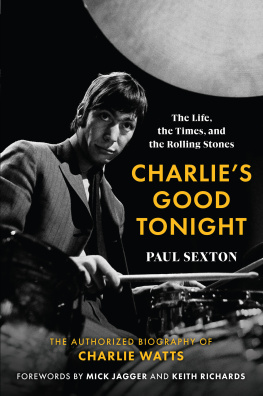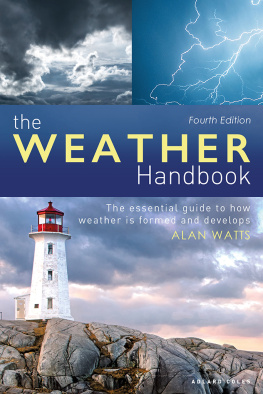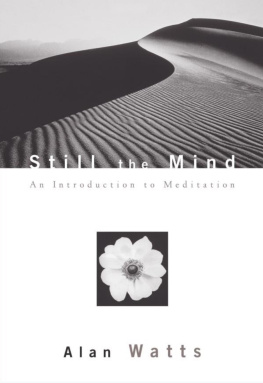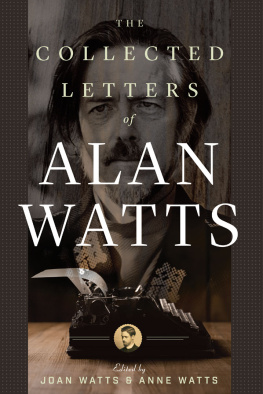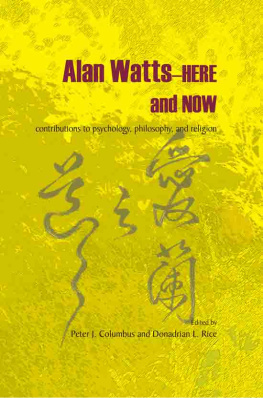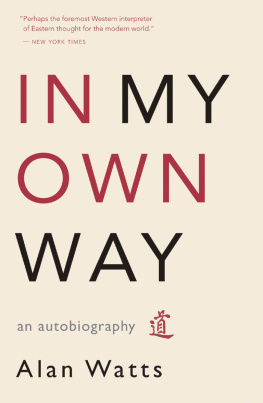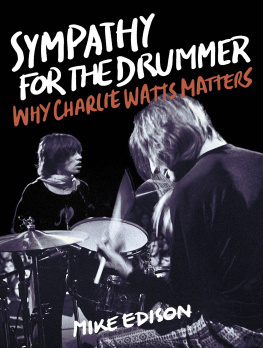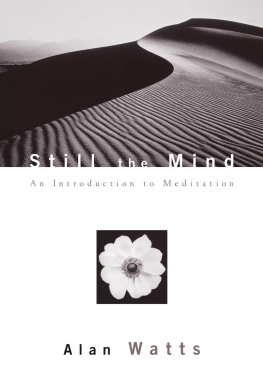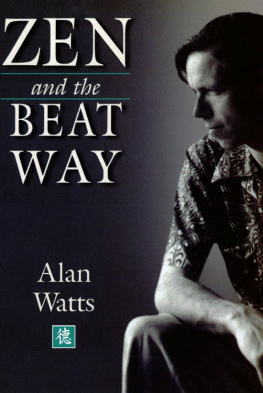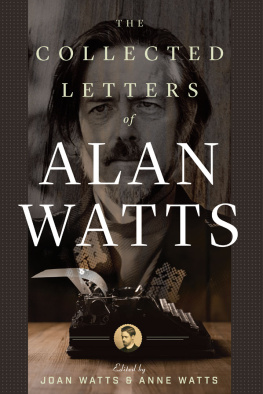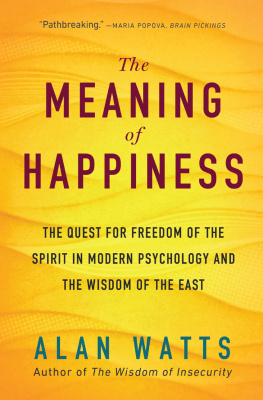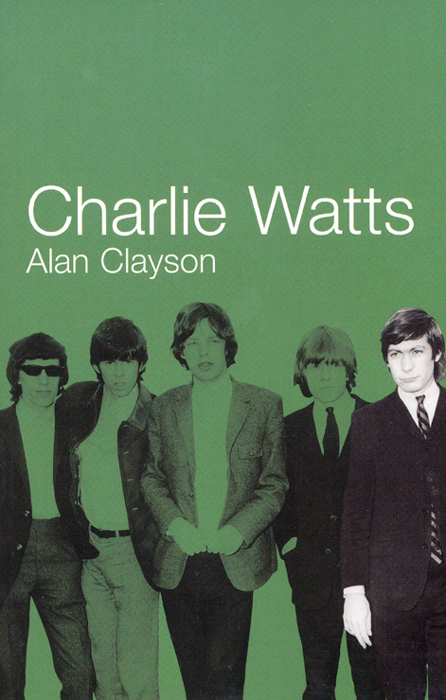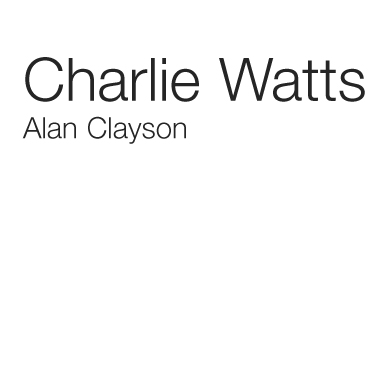The Author hereby asserts his / her right to be identified as the author of this work in accordance with Sections 77 to 78 of the Copyright, Designs and Patents Act 1988.
All rights reserved. No part of this book may be reproduced in any form or by any electronic or mechanical means, including information storage and retrieval systems, without permission in writing from the publisher, except by a reviewer who may quote brief passages.
Every effort has been made to trace the copyright holders of the photographs in this book, but one or two were unreachable. We would be grateful if the photographers concerned would contact us.
A catalogue record of this book is available from the British Library.
For all your musical needs including instruments, sheet music and accessories, visit www.musicroom.com
For on-demand sheet music straight to your home printer, visit www.sheetmusicdirect.com
About The Author
Born in Dover, England, in 1951, Alan Clayson lives near Henley-on-Thames with his wife, Inese, and sons, Jack and Harry. His portrayal in the Western Morning News as the AJP Taylor of the pop world is supported by Qs his knowledge of the period is unparalleled and hes always unerringly accurate. He has written many books on music, including best-sellers Backbeat (subject of a major film) and The Yardbirds, as well as for journals as diverse as The Guardian, Record Collector, Mojo, The Times, Mediaeval World, Eastern Eye, Folk Roots, Guitar, Hello!, the Independent, Ugly Things and, as a teenager, the notorious Schoolkids Oz. He has also performed and lectured on both sides of the Atlantic, as well as broadcast on national TV and radio.
From 1975 to 1985, he led the legendary group Clayson And The Argonauts and was thrust to a premier position on rocks Lunatic Fringe (Melody Maker). As shown by the formation of a US fan club dating from a 1992 soire in Chicago Alan Claysons following has continued to grow, as has demand for his talents as a record producer and the number of cover versions of his compositions by such diverse acts as Dave Berry in whose Cruisers he played keyboards in the mid-1980s and New Age outfit Stairway. He has also worked with The Portsmouth Sinfonia, Wreckless Eric, Twinkle, The Yardbirds, The Pretty Things and the late Screaming Lord Sutch, among others. While his stage act defies succinct description, he is spearheading an English form of chanson. Moreover, his latest album, Soire, may stand as his artistic apotheosis, were it not for the promise of surprises yet to come.
Further information is obtainable from www.alanclayson.com.
Prologue
Onlooker
Charlie was a very hermit-like guy. His mind always seemed to be somewhere else. He didnt seem to join in the flow of it at all.
Michael Putland, Rolling Stones photographer
His membership of The Rolling Stones will always remain central to any consideration of Charlie Watts as a figure in times fabric. Nevertheless, he was often a mere onlooker, a bit-part player at most, during many of the more conspicuous events that have punctuated the groups four decades as one of the showbusiness sensations of the past century. Neither has he ever commented much either on, say, the drugs busts that all but destroyed the Stones in the late 1960s; the crisis at Altamont that threatened to ruin their reputation, the business in Canada with the prime ministers wife Therefore, I make no apologies for telescoping these and other episodes for literary and chronological convenience.
Moreover, as George Harrison had been categorised for all time as the Quiet Beatle in 1963 with Ringo Starr a close second so some pressured journalist chronicling the mayhem surrounding The Rolling Stones in 1964, came up with the Silent Stone as a description for Charlie. This phrase stuck, fuelled as it was by media frustration at his reluctant and, seemingly, bored utterances in interviews and when a stick-mic was thrust at his mouth every time the Stones had been through customs at an airport.
Not surprisingly, it was without much hope that I attempted to elicit Charlies assistance with this biography. He did not deign to reply to my letter assuring him that mine was to be a respectful account, concentrating mainly on his professional career and artistic output, that it would not peter out after the swinging 60s, that I was not some scum reporter, but an artiste like himself. I wanted him to like it. His silence was galling, but a recent biographer of William Rufus hadnt spoken to his subject either, and there was far more information available about Charlie than about William, much of it from press archives and conversations with many of those with whom Watts and his Rolling Stones were associated.
For most of my research concerning modern drumming and insight into Charlie Watts impact on same, I went first and last to Alan Barwise, drummer and philosopher with Billy And The Conquerors, Clayson And The Argonauts and other ventures, quixotic and otherwise, which I have instigated over the past 30-very-odd years.
Please put your hands together, too, for Iain MacGregor, Laura Brudenell, Rachel Holmes, Dicken Goodwin, Albert DePetrillo, Michael Wilson, Kathleen Meengs and, particularly, Chris Harvey for patience and understanding about a deadline that I almost-but-not-quite met.
Thanks are also in order for Pat Andrews, Dave Berry, Don Craine, Keith Grant-Evans, Phil May, Dick Taylor and Twinkle for their candour and intelligent argument.
Whether they were aware of providing assistance or not, lets have a round of applause, too, for these musicians: Roger Barnes, Peter Barton, Cliff Bennett, Clem Cattini, Mike Cooper, Tony Dangerfield, the late Lonnie Donegan, Chris Gore, Wreckless Eric Goulden, Brian Hinton, Robb Johnston, Garry Jones, Graham Larkbey, Tom McGuiness, Brian Poole, Jim Simpson, John Steel, Mike and Anja Stax, the late Lord David Sutch, John Townsend, Paul Tucker and Pete York plus three cheers for Carlo Little, former Cyril Davies All-Star, Lord Sutch Savage and just Rolling Stone.
It may be obvious to the reader that I have received help from sources that prefer not to be mentioned. Nevertheless, I wish to thank them, as well as Robert Cross of Bemish Business Machines, Stuart and Kathryn Booth, Peter Doggett, Ian Drummond, Katy Foster-Moore, Richard Hattrell, Michael Heatley, Dave Humphries, Rob Johnstone, Allan Jones, Mick and Sarah Jones, Iris Little, Elisabeth McCrae, Russell Newmark, Mike Ober, Mike Robinson, Hilary Stafford-Clark, Anna Taylor, Michael Towers, Warren Walters, Gina Way and Ted Woodings, and of course Inese, Jack and Harry Clayson for suffering by proxy the cruel and unusual personal traumas I endured during the writing of this book.
Alan Clayson
February 2004
1 Drums
A good drummer who swings makes everybody else play better.
Don Hyman
Hed finish 1964 neck and neck with Dave Clark as the second most famous drummer in the world. The first, of course, was Ringo Starr and like The Beatles most junior partner, Charlie Watts had been sucked into a vortex of events that hadnt belonged even to speculation when he came to consciousness in a city neighbourhood that unfurled on to the mud banks of a working river.


